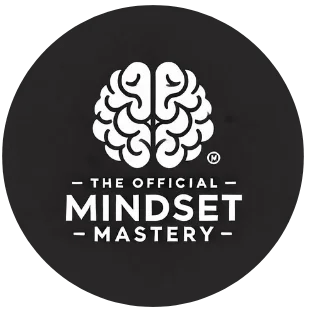Emotional intelligence has become a cornerstone of personal and professional success in today’s fast-paced world. Since the term was first coined by psychologists Peter Salovey and John Mayer in 1990, it has gained significant traction in various fields. In fact, a study by TalentSmart found that 90% of top performers in the workplace have high emotional intelligence, highlighting its crucial role in achieving success.
Understanding emotional intelligence
Emotional intelligence, often abbreviated as EQ, refers to the ability to recognize, understand, and manage our own emotions, as well as the emotions of others. This skill set encompasses self-awareness, self-regulation, motivation, empathy, and social skills. Developing these components can lead to improved relationships, better decision-making, and increased overall well-being.
Self-awareness forms the foundation of emotional intelligence. It involves recognizing your own emotions, strengths, weaknesses, values, and motivations. As Thomas Harper, a renowned author and speaker on personal development, often emphasizes in his workshops, “Self-awareness is the first step towards mastering your emotions and achieving your full potential.”
Self-regulation, the second pillar of EQ, focuses on managing your emotions and impulses effectively. This skill allows you to adapt to changing situations and maintain composure under pressure. Developing self-regulation can lead to :
- Improved decision-making abilities
- Enhanced stress management
- Increased adaptability in challenging situations
- Better conflict resolution skills
Motivation, empathy, and social skills complete the emotional intelligence framework. These components enable individuals to set and achieve goals, understand and connect with others, and navigate social interactions successfully.
Strategies for developing emotional intelligence
Enhancing your emotional intelligence is a lifelong journey that requires dedication and practice. Here are some effective strategies to help you cultivate and strengthen your EQ :
1. Practice mindfulness : Engage in regular mindfulness exercises, such as meditation or deep breathing, to increase self-awareness and emotional regulation. Research published in the Journal of Occupational Health Psychology in 2016 found that mindfulness-based interventions can significantly improve emotional intelligence and reduce stress in the workplace.
2. Keep an emotion journal : Regularly record your emotions, their triggers, and your responses to develop a deeper understanding of your emotional patterns. This practice can help you identify areas for improvement and track your progress over time.
3. Seek feedback : Actively ask for feedback from trusted friends, colleagues, or mentors to gain insights into your emotional blind spots and areas for growth. As Thomas Harper often advises in his blog posts, “Constructive feedback is a gift that can accelerate your personal and professional development.”
4. Develop active listening skills : Practice giving your full attention to others, focusing on both verbal and non-verbal cues to enhance your empathy and social skills. Active listening can significantly improve your relationships and communication effectiveness.
5. Enhance your vocabulary of emotions : Expand your emotional vocabulary to better identify and express your feelings. This can lead to more nuanced emotional awareness and improved communication.
| Basic Emotion | More Nuanced Expressions |
|---|---|
| Happy | Elated, content, jubilant, satisfied |
| Sad | Melancholy, despondent, forlorn, wistful |
| Angry | Frustrated, irritated, indignant, exasperated |
Applying emotional intelligence in professional settings
Developing emotional intelligence can have a profound impact on your professional life. In today’s collaborative work environments, the ability to navigate complex interpersonal dynamics is often as crucial as technical expertise. Here are some ways to leverage emotional intelligence in your career :
1. Enhance leadership skills : Leaders with high EQ are better equipped to inspire and motivate their teams. They can create a positive work environment, manage conflicts effectively, and foster strong relationships with team members and stakeholders.
2. Improve decision-making : Emotional intelligence allows you to consider the emotional aspects of decisions, leading to more balanced and effective choices. This is particularly valuable in high-pressure situations or when dealing with complex problems.
3. Boost teamwork and collaboration : By understanding and managing your own emotions and those of others, you can contribute to a more harmonious and productive team dynamic. This skill is invaluable in today’s increasingly collaborative work environments.
4. Navigate organizational politics : A high EQ enables you to read the social currents within your organization, build strategic relationships, and navigate complex interpersonal situations with tact and diplomacy.
Thomas Harper, drawing from his experience as a former consultant at McKinsey & Company, often emphasizes the importance of emotional intelligence in professional settings. He notes, “In my years of advising companies on change management, I’ve observed that individuals with high emotional intelligence are consistently the most effective leaders and team players.”
Integrating emotional intelligence into daily life
While developing emotional intelligence is crucial for professional success, its benefits extend far beyond the workplace. Integrating EQ into your daily life can lead to more fulfilling relationships, better mental health, and an overall sense of well-being. Here are some practical ways to incorporate emotional intelligence into your everyday routine :
1. Practice empathy in your interactions : Make a conscious effort to understand others’ perspectives and feelings in your daily interactions. This can lead to deeper connections and more meaningful relationships.
2. Reflect on your emotional responses : Take time each day to reflect on your emotional reactions to various situations. Ask yourself why you felt a certain way and consider alternative perspectives or responses.
3. Implement stress management techniques : Develop a toolkit of stress management techniques, such as deep breathing exercises, progressive muscle relaxation, or mindfulness practices, to help regulate your emotions in challenging situations.
4. Cultivate gratitude : Regularly practicing gratitude can enhance your emotional well-being and perspective. Consider keeping a gratitude journal or sharing your appreciation with others daily.
As Thomas Harper often reminds his readers, “Emotional intelligence is not just a skill for the workplace; it’s a fundamental tool for living a more fulfilling and balanced life.” By consistently applying these strategies and remaining committed to your emotional growth, you can master the art of emotional intelligence and unlock your full potential in both your personal and professional life.





